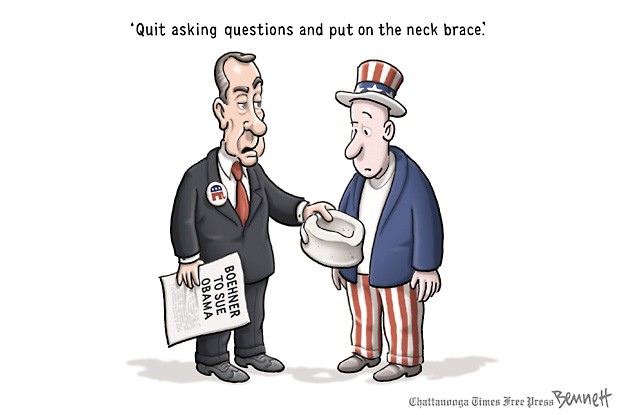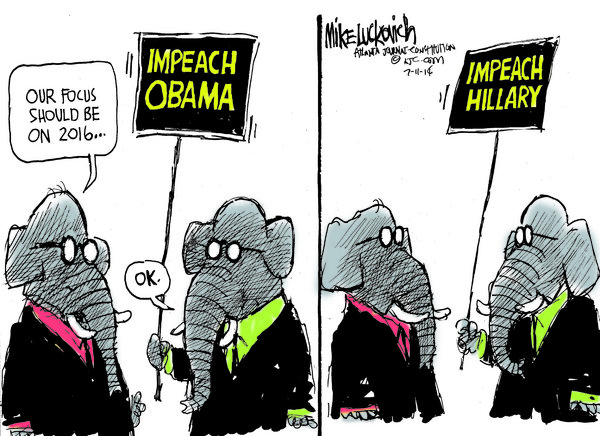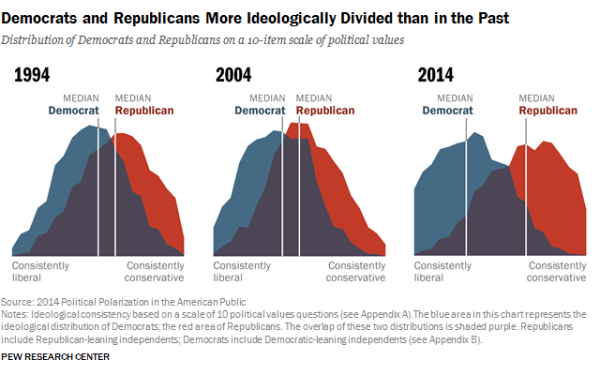Cuba’s Future and its Relationship with the United States
The Wrongologist did not become an expert by spending 7 days in Cuba. Just like all countries, Cuba is a complex set of equations. A few truths did emerge though:
Ideology and Intellectual History:
Cuba is organized around the intellectual legacy of Jose Marti. Statues of Marti and quotes from his writings are everywhere in Cuba, including in many homes and public buildings. He was 42 when he died in battle against Spanish troops at the Battle of Dos Ríos, in May, 1895. After his death, one of his poems from the book, “Versos Sencillos” (Simple Verses) was adapted to the song “Guantanamera“, which has become the definitive patriotic song of Cuba.
The Wrongologist was struck by a quote on the wall of the Hogar Materno he visited in Old Havana. Here is his translation:
When you struggle for your country and life, division and rivalry are crimes – Marti
Those are words to live by. For Cubans, the revolution was not an event; it is a national continuous improvement process that is still moving forward, 55 years after the overthrow of the dictator, Batista. Here is a billboard just outside of the Jose Marti International Arrivals building that makes the point:

Cubans have internalized the ideology of the Revolution. It comes through in their speaking in a matter-of-fact way,
similar to the way Evangelicals speak about being Christians. This is not an equivalency; while Cubans are somewhat religious, the Revolution is a part of Cuban life, both in practical and ideological ways.
Cubans are steeped not only in the ideology of the July 26th Revolution, but in the writings of Marti and Che Guevara. Che was an Argentine Marxist revolutionary and is a common symbol of rebellion and global insignia in popular Cuban culture.
 Here is a
Here is a
photo of a wall in Old Havana. Che played a central role in training
the militia forces that repelled the Bay of Pigs Invasion and in bringing the Soviet
missiles to Cuba, precipitating the 1962 Cuban Missile Crisis. He was executed by
Bolivian troops in 1967 after he joined their revolution.
Havana’s Revolution Square is the political and cultural center of the city; it is the site where Fidel Castro has addressed the Cuban people, occasionally with more than 1 million people participating.
The Square has a 55’ tall statue of Jose Marti at its center. The Square is surrounded by buildings housing the major ministries of the Cuban government, including the Communist Party, Armed Forces, Communications, and Economic and Planning, the National Theater and the Jose
Marti Library.
Here is a photo of the Informatics and Communications Ministry in Revolution Square:

The Cuban Revolution was a turning point in Cuban/American relations. In August 1960, the Eisenhower administration froze all Cuban assets on American soil, severed diplomatic
ties, and tightened its embargo of Cuba. The embargo, called “the blockade” by Cubans, is the longest-lasting single foreign policy in American history. It remains in force today, although there have been efforts, notably by the Obama administration, to loosen it in recent years.
What is the status of Cuba’s economy?
According to the Council on Foreign Relations, the economy is divided into the following revenue streams:
- Export of Healthcare Services – as described in the Wrongologist’s Postcards from Cuba -Part II, Cuba earns $9 billion/year in hard currency by exporting health care services.
- Nickel − Cuba has the third-largest nickel reserves in the world. Nickel is the country’s biggest material export, bringing in roughly $2.7 billion in 2007
- Tourism − Now the economy’s 2nd largest source of revenue, tourists–primarily from Canada and the European Union—brings more than $2.7 billion into the country.
- Remittances − Academic sources estimate remittances total more than $1 billion a year, most coming from families in the US. If limits on remittances are lifted, this figure could increase substantially.
- Sugar − Sugar was long the primary industry in Cuba, but production has plummeted due to outdated factory equipment.
- Foreign investments − Cuba receives hundreds of millions of dollars in foreign investments from China,
Venezuela, and Spain.
Food security is a major problem for Cuba. According to the Miami Herald:
Cuba saw a steep and unexplained drop in the harvest of vegetables and fruit in the first three months of the year [2013] despite government reforms to increase production in a country that spends more than $1.5 billion on food imports
Overall agricultural production, not counting sugarcane, dropped by 7.8% in the first quarter of 2013 compared
to the first three months of 2012. But some sectors saw far bigger plunges. Plantains dropped by 44.2%, potatoes by 36% and citrus by 33.9%. Part of the decline is attributed to Hurricane Sandy, which slammed into the eastern city of Santiago de Cuba on Oct. 25. Eastern Cuba is known for its fruit production.
This grim outcome is despite President Raúl Castro’s 2007 campaign to increase domestic food production by leasing fallow state lands to private farmers, hiking the prices
that the government pays for agricultural goods and easing state controls on the distribution networks. Food production on the island dropped in 2011 to pre-2007 levels and dropped again in 2012, when agricultural food prices were
reported to have spiked by about 20%.
Cuba now imports an estimated 80% percent of the food its people consume, at a cost of more than $1.5 billion per year. This
is hardly a sustainable scenario, and while there does not appear to be starvation in Cuba, food shortages remain a problem.
The Wrongologist visited a predominantly farming area in Pinar Del Rio and saw a farm that did not use agricultural chemicals, relying instead on organic fertilization and pest control.
One issue that leads to inefficiency is the reliance by small independent farmers on animals for plowing. Here is a tobacco farmer in Pinar Del Rio:
 The lack of tractors is very obvious in this agricultural region that is less than 2 hours from Havana. Most tractors that we did see were Soviet-era imports.
The lack of tractors is very obvious in this agricultural region that is less than 2 hours from Havana. Most tractors that we did see were Soviet-era imports.
What are the issues that prevent normalization of US-Cuba relations?
- Human rights violations − In March 2003, the Cuban government arrested 75 dissidents and journalists, sentencing them to prison terms of up to 28 years
on charges of conspiring with the United States to overthrow the state. There are reports that the government has in recent years used other tactics
besides prison, including firings from state jobs and intimidation, to silence opposition figures. Despite a 2005 UN Human Rights Commission vote that condemned Cuba’s human rights record, Cuba was elected to the UN Human Rights Council in 2006.
- Guantanamo Bay − Cuban officials have seized on the US prison camp as a “symbol of solidarity” with the rest of the world against the United States.
- Cuban exile community − The Cuban-American community in southern Florida traditionally has heavily influenced US policy with Cuba. Both political parties fear alienating a strong voting bloc in an important swing state in presidential elections.
According to the BBC, Edward Alex Lee of the US State Department said: (brackets by the Wrongologist)
The United States is ‘very open’ to building a new relationship with Cuba but that any improvement should go hand-in-hand with more political freedom [in Cuba]
Lee went on to say that the two countries had held “very constructive” talks on migration and other issues last week, but he declined to give any details of what he called “substantial progress”. Lee added that the
two nations would seek to continue their negotiations:
Despite our historically difficult relationship…we have been able to speak to each other in a respectful and thoughtful manner…
So maybe there is hope that normalization of relations can take place. Most Cubans that the Wrongologist talked to about this feel it will happen in about 3 years. This may be unconsciously tied to their estimate of when Fidel Castro
will die. Perhaps they believe that the attitudes of Cuban-Americans who control much of America’s agenda regarding Cuba will soften when Fidel dies.
According to the Pew Research Center, there are about 1.9 million Cuban-Americans in the US. 70% of Cuban-Americans live in Florida, making them the most geographically concentrated of the 12 largest Hispanic origin groups.
We know that the younger generation of Cuban-Americans voting bloc took a major shift toward the left during the 2012 election. According to Dan Moffett, an immigration writer:
According to exit polls by Bendixen & Amandi International, President Obama got 48% of the exile community’s vote and Republican candidate Mitt Romney received 52%. Four years before, when Obama ran against John McCain, he got only 35% of the Cuban-American vote
Polling done by Bendixen & Amandi was trying to measure the generational shift within the Cuban community. The pollsters found that President Obama in 2012 won 60% of the votes of those Cuban-Americans who were born in the United States. Romney, meanwhile, won 55% of the vote among Cuban-Americans who were born in Cuba.
However, politicians remember that in 2004, John Kerry was able to get only 29% of the state’s Cuban-American vote in losing to George W. Bush. In 2000, Bush got about 75% of the bloc’s vote in defeating Al Gore. Cuban-Americans were
the difference in Bush winning Florida, and Florida was the difference in his winning the White House.
Conclusions:
Thinking that Cuban-American relations could be normalized within three years or when Fidel Castro dies is overly optimistic. It’s really a bit silly that the US continues to hold a cold war grudge against Cuba. The US could most readily help the people of Cuba by opening up trade between the two countries. A communist government with horrible human rights record hasn’t stopped America from dealing with China, so why not trade with Cuba? (Not that the Wrongologist is a supporter of communist governments or states that lack commitment to human rights)
How can trade with Cuba be wrong because the country is communist, but trade with China and Vietnam is vital to economic progress and a spirit of international harmony?
The US is happily in bed with the “democracy” that is Saudi Arabia, but cannot abide the Cuban state? Our hard line position is more about those Cuban-Americans who feel that the embargo will eventually return the houses that they abandoned 55 years ago when they left Cuba for Miami.
That isn’t about ideology, or about the human rights of the Cuban people.
It’s time we change our strategy. Our policies haven’t broken the Cuban government in 55 years, so it may be time to give up the sanctions and help ourselves and the Cuban people.
The alternative is for the US to cede that relationship to China.
The US State Department is not afraid of a “special relationship” between Venezuela and Cuba, but a “special relationship” with China will remind our old guard political realists of the terribly flawed geopolitical position the US had when the Soviet Union made Cuba into an economic client.
Yet, Cubans should be careful what they wish for. Fast food restaurants, more high-rise hotels and golf courses may create tin shack shanty towns when American developers are allowed into Havana.
Good luck to the Cubans, lovely people, and a lovely country.
(This is the final installment of the 3-part series on the Wrongologist’s visit to Cuba.)












 Here is a
Here is a
 The lack of tractors is very obvious in this agricultural region that is less than 2 hours from Havana. Most tractors that we did see were Soviet-era imports.
The lack of tractors is very obvious in this agricultural region that is less than 2 hours from Havana. Most tractors that we did see were Soviet-era imports.